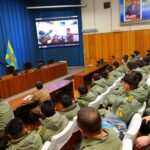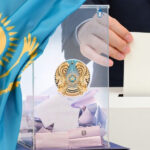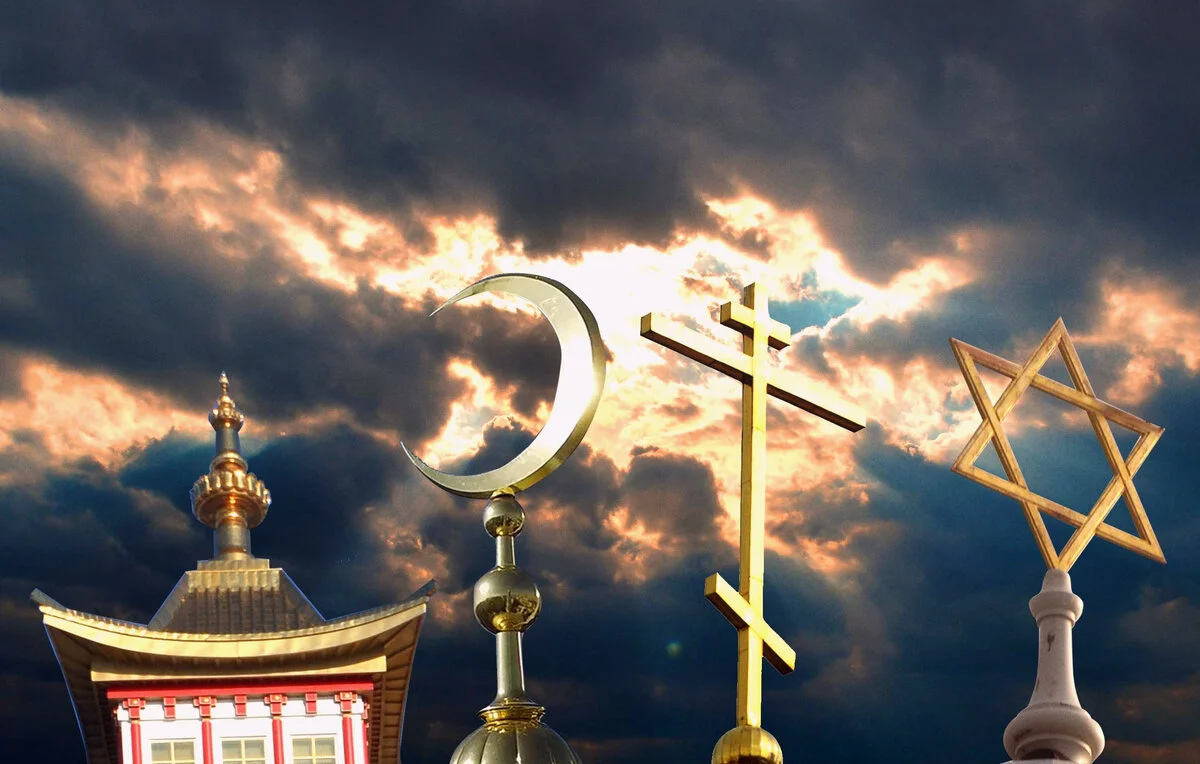The Telegram channel NewsRoom99 analyzed the speech of Kassym-Jomart Tokayev at the National Kurultai, where the president addressed the religious issue.
Perhaps for the first time, the President of Kazakhstan, Kassym-Jomart Tokayev, spoke so categorically about the growing level of religiosity in the country. He stated that «radically-minded neophytes are trying to impose alien religious ideals on society, including in the form of archaic forms of clothing.» Tokayev said that this is «an overt challenge to our traditional foundations and values.»
Kazakhstan will always be tolerant of all religions, beliefs, and teachings that do not undermine our statehood and public morality. But we cannot and will not follow those who, under the influence of Western and other trends, promote values alien to our culture, moreover, contrary to the dualistic foundation of the world, from the text of the president’s speech.
Does this mean that after many years of ignoring the religious issue, the state will now establish control over this sphere and prevent the spread of religious radicalism and the increase in the number of citizens fanatically devoted to faith?
No Tightening
Political scientist Daniyar Ashimbayev believes that Tokayev’s statement is not a new position of the state. It has been voiced before. According to the expert, the president’s statements do not mean that the authorities intend to «tighten the screws.»
The president voiced things that he has spoken about repeatedly. It’s just now become a more cohesive thesis. In the context of the religious issue, the president, firstly, identified risks associated with the fact that religiosity began to oppose national values, the mentality of the Kazakh people. Secondly, it became a factor not only of religious radicalism but also of social and societal regression, decline. The president stated that we respect religion, but we must proceed from the Kazakh model primarily, which is more tolerant, broader, and based on centuries-old traditions. It’s clear that Arabization has been actively taking place over the past two decades. But the Kazakh model of Islam has never been dogmatic, and secondly, the urban model that developed during the Soviet years was largely built on modernization and the clergy’s rejection of many norms that, so to speak, contradicted the norms of the country’s political life,
says Ashimbayev.
The Hijab Issue is Closed
The political scientist believes that the growing level of religiosity among Kazakhstanis has been reflected in many areas, such as education, culture, politics, and even family and domestic issues.
And all this has become a threat not just in the context of the state, but in general to public morality. We clearly see the rise in violence, the rise in extremism, and the opposition to education and culture, and so on. The president spoke out not against Islam in general, but against those forms that are alien to our mentality, our history. This, in my opinion, is a very correct and timely framing of the issue,
noted the expert.
Every year in Kazakhstan, local conflicts flare up over religious issues. The most controversial issue is the wearing of hijabs by underage schoolgirls. This year, the Ministry of Culture and Information, represented by Minister Aida Babaeva, finally put an end to the dispute by clearly stating the government’s position—school-age girls should attend lessons in the attire established by the rules of the educational institution, that is, in a regular school uniform, without headscarves.
The hijab issue also arose in the 2000s. It’s just that some officials periodically try to present their opinions as state policy, for which they periodically get reprimanded. People prone to radicalism often bring up such topics in order to pressure the state once again.
«If today the issue is the wearing of the hijab, tomorrow they can raise the issue of separate education for boys and girls, then the issue of changing the curriculum in accordance with religious dogmas will arise, and so on. These are all links in one chain. If there is a weakness somewhere, then a provocative information attack begins immediately,» says Daniyar Ashimbayev.
According to the political scientist, religiosity in Kazakhstan is more like a fashion trend than true faith, as evidenced by the sharp increase in covered Kazakh women and men with clearly expressed external attributes demonstrating their religious affiliation. However, the lifestyle, behavior, and actions of some of them clearly conflict with their piety.
We have a layer of people who consider themselves more religious than others. In fact, Kazakh Islam has never been canonical. If we look, Islam and any other religion have not always corresponded to the canons that were laid down 15-16 centuries ago. Any religion takes on a local form and borrows a narrow segment from the canon that is suitable for the local mentality. The older generation tries to adopt polygamy, especially among elderly officials and businessmen. And the youth, as we see, borrow from religion a beard, hijab, scarves, without understanding any spiritual values. Even among those who consider themselves deeply religious, there is a certain mess in their heads of contradictory theses,
believes the expert.
According to him, the level of religiosity in Kazakhstan began to gradually increase in the late Soviet years against the backdrop of urbanization. If previously religiosity did not fit into the nomadic way of life, then with sedentarization, religious rituals began to penetrate the lives of the population.
We all understand that religiosity concerns not so much spirituality as ritualism: weddings, funerals, where representatives of the clergy could provide paid services. All this is disguised as national traditions since then (in the late Soviet years) there was a fashion for the revival of national traditions. In fact, no one really conducted research on what constitutes national traditions and to which period a particular tradition corresponds. There are late Soviet and early Soviet traditions, as well as traditions of nomadic times, plus the specifics of regions,
explained the political scientist.
Now, fanatical religiosity is dragging in the youth, he believes. World events have influenced and continue to influence this, such as the war in the North Caucasus, in Afghanistan, and later in Syria. And now the situation in Palestine is causing sympathy among many Kazakhstanis towards their brothers in faith.
We see that many demonstrate their religiosity, many have ostentatious religiosity. Beards and scarves, they all show that they are more spiritual than others. But if you look closely, their manners of behavior do not differ from everyone else. A certain part of the population has a peaceful religiosity, and there is a smaller group of people whose religiosity turns into fanaticism. All this should not be mixed into one heap; these are different facets of the same phenomenon. And we see in essence that both in old Kazakhstan and in new Kazakhstan there are officials, politicians who adhere to radical views, with whom the state periodically parts ways. Including the January events showed that organized crime was used for conspiracy through special services, mobilized on the principle of religious radicalism. This is not about religion, in essence, it is organized crime. Due to the low level of education and culture, people themselves do not understand what religion is and how to relate to it, so many try to demonstrate such ostentatious religiosity, so as not to bother their heads with unnecessary philosophical questions,
says Daniyar Ashimbayev.









